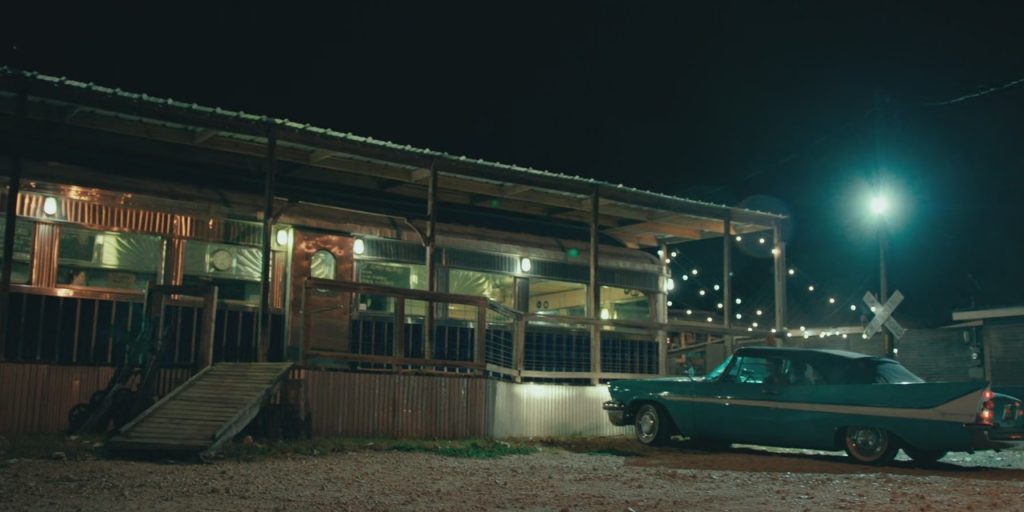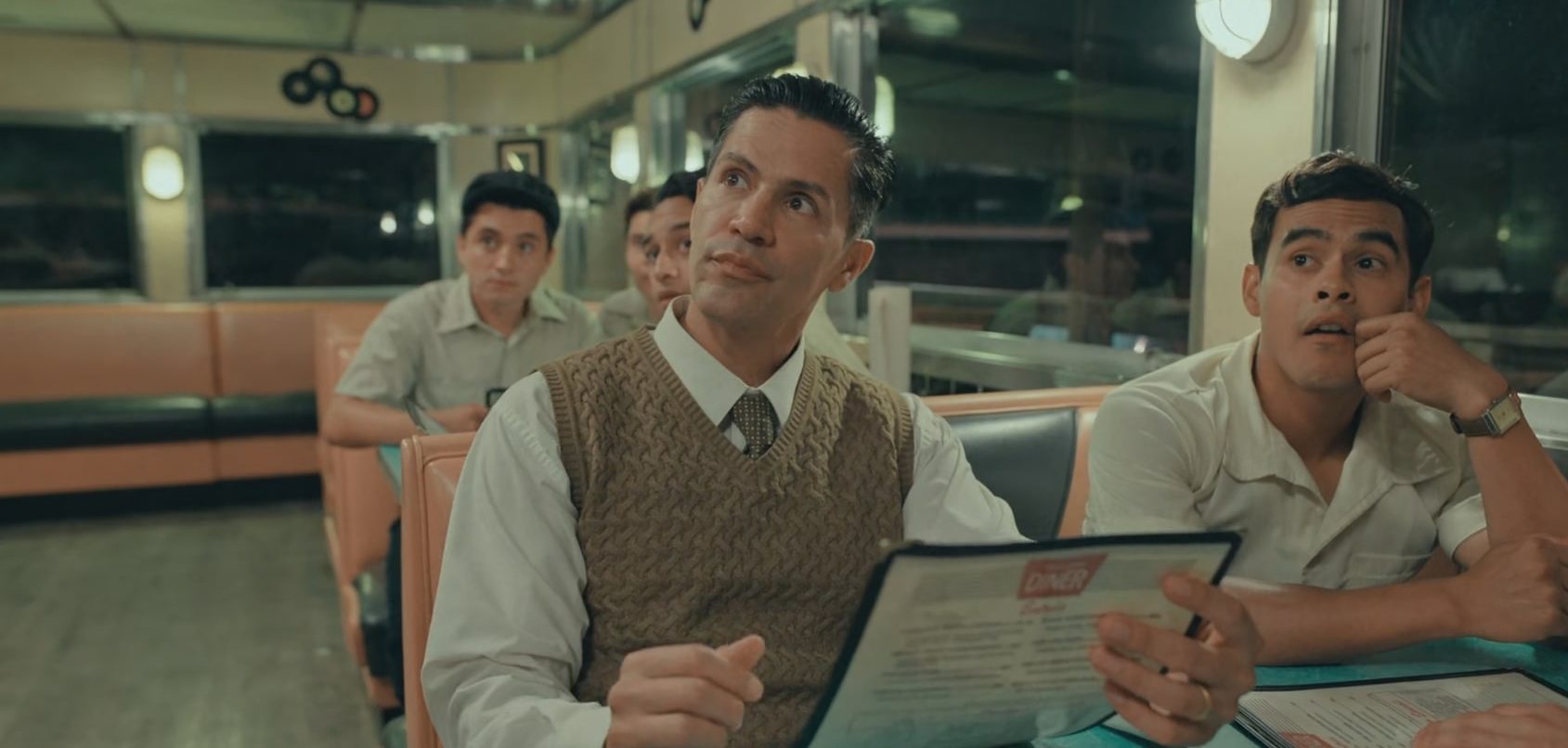Set against the backdrop of the 1950s in Texas, Julio Quintana’s ‘The Long Game’ unearths the inspiring tale of the San Felipe Mustangs, a high school golf team comprising five Mexican-American youngsters – Joe Trevino, Gene Vasquez, Felipe Romero, Mario Lomas, and Lupe Felan – who defy the norm by winning the 1957 Texas State High School championship. During their journey, they are ostracized and discriminated against regularly, especially when they stop at a local diner named Marlas Breakfast. After their first tournament, the group’s celebrations are cut short by the attitude of the establishment’s owner, solidifying its presence as a pivotal setting in the sports drama that sheds light on the obstacles the Mustangs face as they strive to be champions!
Marlas Breakfast is Not a Real Diner
Marlas Breakfast in ‘The Long Game’ is a fictional diner conceived by director Julio Quintana and his co-writers, Paco Farias and Jennifer C. Stetson. While the film is based on the true story of the San Felipe Mustangs as chronicled in the 2010 book ‘Mustang Miracle,’ written by Humberto G. Garcia, there are certain fictionalized aspects in the narrative that dramatize the real-life saga. One such element is the inclusion of the diner, where the Mustangs are ostracized by the shop’s owners due to their Mexican heritage. The experience at the establishment teaches the young golfers that a harsh reality exists that cannot be hidden with their celebrations. Instead of jubilation, the joy of the players is replaced by a sense of injustice and unfairness.

Garcia’s ‘Mustang Miracle,’ the source text of the book, does not mention any diner that resembles Marlas Breakfast. Furthermore, its owner did not track down Joe amid the state championship to jeopardize the chances of the Mustangs winning the tournament. This particular plot point might have been conceived to raise the stakes and tension in the narrative and emphasize J.B. Peña. However, Garcia wrote about how people of Mexican heritage were not welcomed in restaurants in the 1950s. “Even though we [Mexican Americans] made up the majority of the population of the border cities, that is, those cities situated on the border with Mexico, we were considered ‘different’ and unworthy of socializing with the white population. We were not allowed in many restaurants, hotels, and other service establishments,” reads the book.
Discrimination against Mexican Americans and Latin Americans existed throughout the history of the country. After the Mexican-American War of 1848, a large part of Mexico’s territories and population were annexed to U.S. soil. Following this event, the newly instated Mexican Americans, who often lived in poorer, struggling areas, faced prejudicial treatment, including segregation in schools and mob lynching. Oppressive sentiments grew even further when the immigration of Hispanics from Mexico increased during the late 19th century and early 20th century. Thus, the behavior exhibited by the owners of Marlas Breakfast isn’t unrealistic considering the film’s setting and the underlying beliefs brewed in people’s minds in the 1950s. There was a deep mistrust and an irrational hatred for Latinos that had no explanation other than the period’s societal and cultural norms.
To bring the diner to life, the production crew of ‘The Long Game’ used the Hullabaloo Diner at 15045 Farm to Market Road 2154 in College Station, Texas. Dennis Quaid, who plays Frank Mitchell, elaborated on the shooting of the diner scene to Entertainment Weekly. “That was the last day of shooting, and I think we worked 36 hours in a 24-hour day to get that scene done. We worked all night, but it was a great crew for that. That’s where movies actually get great for me. Everybody’s tired, but nobody wants to go home; they want to get it as good as they can,” he said.
Marlas Breakfast makes a brief but lasting impact on the narrative because it exposes people’s implicit biases towards the San Felipe Mustangs and Mexican Americans in general during the 1950s. While most businesses prioritize their profits over everything else, the restaurant decides to forgo its commercial concerns to ensure that the Mustangs get no food served in their establishment. However, despite the real-life roots of its misguided stance on handling customers and its general etiquette, the shop can only be found in the realm of fiction.
Read more: The Long Game: Is JB Peña Based on a Real Golf Coach?


You must be logged in to post a comment.